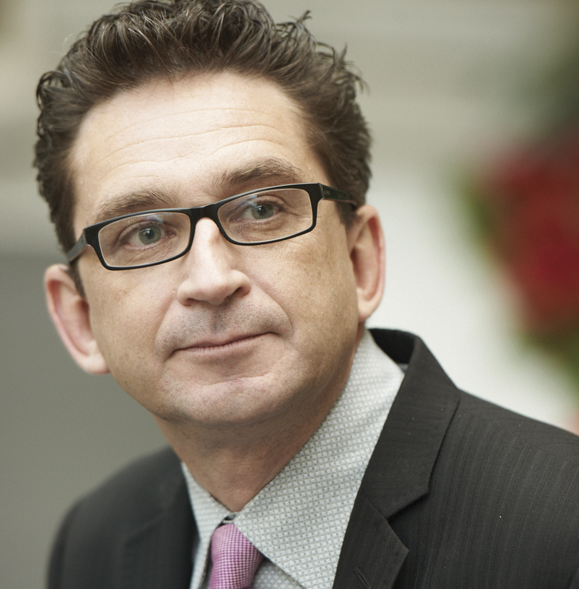The Last Word: Birth Control is a Medical Issue, Not a Religious One
The Irish, a fiercely independent people ruled by another country for centuries, have a unique appreciation for irony. As an advocate for reproductive rights in Ireland, I saw the travesty in a church-sanctioned anti-contraception policy that harmed women and families in the name of saving them from sin. Here, in the country that espouses religious freedom, these problems, long overcome in Ireland, are being echoed in the U.S. bishops’ battle against contraception coverage. The supreme irony is that the bishops are waging their battle under the banner of religious liberty.
The Irish are very familiar with the long, painful conflicts that ensue from the mixture of politics and religion. I’m not just speaking of Northern Ireland, but about the Catholic hierarchy’s bitter opposition to making contraception readily available to the public. From 1935, the sale of contraceptives was criminalized. I should know. In 1992 I was arrested for selling condoms at a Virgin Record store; prophylactics were illegal except for married couples with “bona fide” needs. Irish wits baptized it “the case of the Virgin condom,” but the real paradox was that anyone could see Ireland’s “bona fide” need for contraception.
It was 1940s Ireland, after all, where the term “grand multipara” was coined, referring to women who had given birth more than seven times. This is according to Dr. Michael Solomons, who observed the impact frequent pregnancies had on women: high blood pressure, anemia, poor nutrition, infant and maternal mortality. Sadly, this was the reality the Catholic hierarchy chose to promote. Every bit of today’s access to contraception had to be fought for in court, often beginning with one conscientious voice like that of Dr. Noel Browne, whose refusal to back down on his demands for comprehensive mother-and-child care precipitated the fall of the coalition government in 1948.
When Taoiseach Enda Kenny raised his voice about the devastating Cloyne Report into child sexual abuse by Catholic clergy last July, it was the fruition of decades of conflict over the role of the Catholic hierarchy in Irish life. The speech signaled to the Vatican and the world that Ireland is a mature country that practices a mature Catholicism. Both Irelands have traveled a long and painful road to be able to demand a country that serves all citizens.
Perhaps one of the strongest signs of a new, tolerant Ireland is that contraception is widely considered to be a no-brainer. But today in the US, contraceptives are only one target the bishops have set their sights on. Last fall the bishops created an Ad Hoc Committee on Religious Liberty designed to fight many civil liberties I hold dear as a Catholic: the conscience rights of human trafficking victims to access comprehensive reproductive healthcare; the distribution of condoms and other methods of family planning to help prevent the spread of HIV; and the inclusion of no-copay contraceptive coverage in employee health plans. That their rewritten version of “religious liberty” comes at the expense of many Americans’ freedom of conscience is an irony completely lost on the bishops—as is their expectation that Catholic institutions receive billions in federal money while playing by their own discriminatory rules. As I watch the bishops’ attempt to legislate away reality—the reality that 98 percent of sexually active Catholic women have used contraception—I am reminded that the leaders of my church are willing to pay a very high cost as they seek to cover up the truth.
The legacy of John F. Kennedy’s Catholic pluralism is also being rewritten today. The Irish-American president gave a speech in 1960 affirming that his Catholic civic responsibility made him accountable to his conscience alone. Kennedy’s America, “where no religious body seeks to impose its will directly or indirectly upon the general populace or the public acts of its officials,” is hard to recognize in the bishops’ invective against contraception being preached from the pulpit and sounded in the media and on Capitol Hill. Rick Santorum expressed nausea at Kennedy’s “exclusion” of religion from the public sphere, but as anyone who has experienced civil conflict knows, every faith and political party benefits from a public square that belongs to everyone and no one. When that does not happen, the public square will be hung with the names of those who fight for the rights of nameless citizens’ well-being and freedom.
Writers like Samuel Beckett, Patrick Kavanagh and Edna O’Brien were such targets in the campaign against “evil literature” led by the Irish church, once a symbol of the state’s struggle for independence and ultimately a power the state had to win independence from. Today Ireland is with JFK: “If we cannot now end our differences, at least we can help make the world safe for diversity.” One of the conditions of a safe, just society is the ability to follow one’s conscience in accessing contraception. Mature nations and faiths can accept a diversity of responses to this freedom guaranteed on principle. I do hope that the U.S. government follows the Irish government in seeking to free itself from the shackles that the Catholic hierarchy would impose.
Jon O’Brien is the Irish-born president of Catholics for Choice. Click here for more information.


Gura mile mhaith agatsa!
So clear…so very true!
Beit bua – power to your elbow!
; D
I’m not sure you do want the US government to follow the Irish government though. The Irish government still has abortion illegal in Ireland even in the case of rape or when pregnancy/giving birth would damage the woman’s health or even result in her death all because of what the Catholic Church’s stance on abortion is.